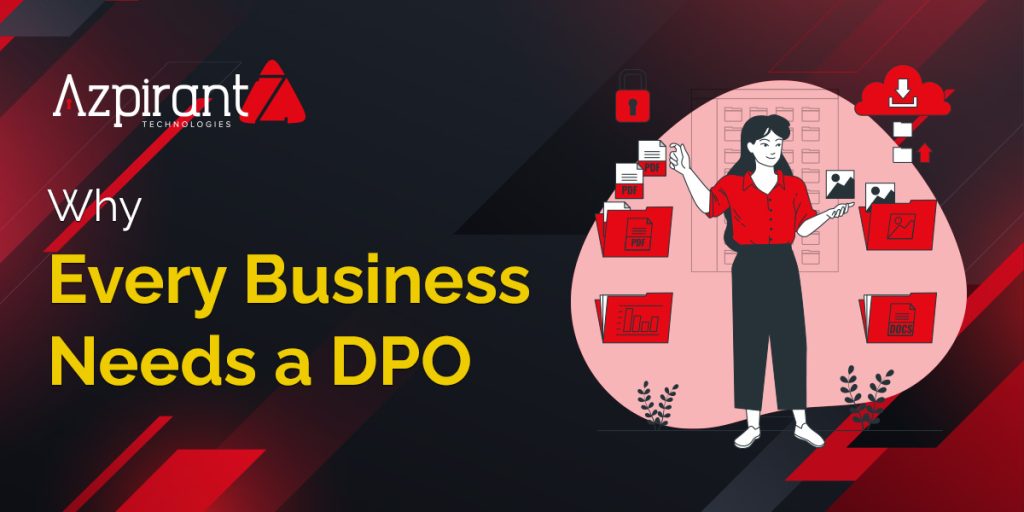The Role of Data Protection Officers (DPOs) in GDPR Compliance
In today’s digital world, Personal data like employee records, vendor information and customer detail are one of the most valuable assets to an organization. Businesses deals with lots of sensitive information on every single day. Organizations responsibility is the need to protect the sensitive information and has to be make sure this information is being handled ethically, transparently and lawfully.

The GDPR introduced in 2018 by the European Union [EU], and since then it is considered as one of the world’s most comprehensive data protection regulations. GDPR has introduced strict rules on how organizations can collect, process and store the persona data. One of the key part of following these rules is having someone responsible for the data protection which is the role of the Data Protection Officer (DPO).
As per the Article 37 of the GDPR, it is mandatory that certain organizations have to appoint a Data Protection Officer (DPO). These include:
- Public authorities or bodies with the exception of the courts acting in their judicial role.
- Organizations that carry out regular and systematic monitoring of the individuals on a large scale through the targeted advertising or mobile app usage analytics etc.
- Organizations that handles or process different categories of personal data such as biometric data, health records on a large scale
Even if your business doesn’t fall under one of these categories, but many companies still choose do appoint a DPO to strengthen their data protection and also to build the trust with their customer and to reduce the risk level. Appointing a DPO is not just to be compliant, but it shows the commitment to privacy and accountability.
The primary focus of the DPDA is to ensure that all the personal sensitive data is handled in such a way it complies with the GDPR and reflects the best practices in privacy.
Some of the key responsibilities of the DPO:
- Advising on GDPR Obligations:
- Monitoring Data Protection Compliance:
- Conducting Training and Awareness:
- Handling Data Subject Requests:
A DPO provides guidance on the organization’s obligations under GDPR which helps on interpreting the complex legal requirements and also helps to apply those rules to the company’s day to day work.
It is the responsibility of an DPO to make sure the company is following the GDPR rules. That includes checking how personal data is being used, review contracts with third parties who handles the data and checking the gaps in controls as well as maintain the upto date records of processing activities.
DPO plays a major role in building the culture of privacy in the organisation. They also organise training sessions, awareness campaigns and they also ensure that every individual in the organisation from interns to senior leadership understand how to handle personal data properly.
As per the GDPR, people have their rights over their personal data such as they can ask to see their data or modify their data and can even have it deleted. The DPO handles these requests and ensure that the organisations respond to them on time as required by the law.
As per the GDPR, it is one of the requirements that the DPO must act independently which means without any influence over how they carry out their responsibilities. They have to report directly to the top management or senior leadership, ensuring the transparency and authority in privacy matters.
In order to perform the role of the DPO effectively, organisations must have to provide the necessary resources such as the budget, access to the systems and sufficient time. Appointing a DPO without providing them proper support may leads to the non-compliance with the GDPR.
Empower your organization with dedicated privacy leadership. At Azpirantz, our Virtual Data Protection Officer services go beyond fulfilling a GDPR mandate. We provide the independent, expert oversight you need to meticulously manage personal data, build a robust privacy culture, and confidently respond to data subject requests. With Azpirantz, your DPO isn’t just a role; it’s a strategic investment that strengthens trust and turns GDPR compliance into a clear competitive advantage in today’s data-driven world
We're Here To Help